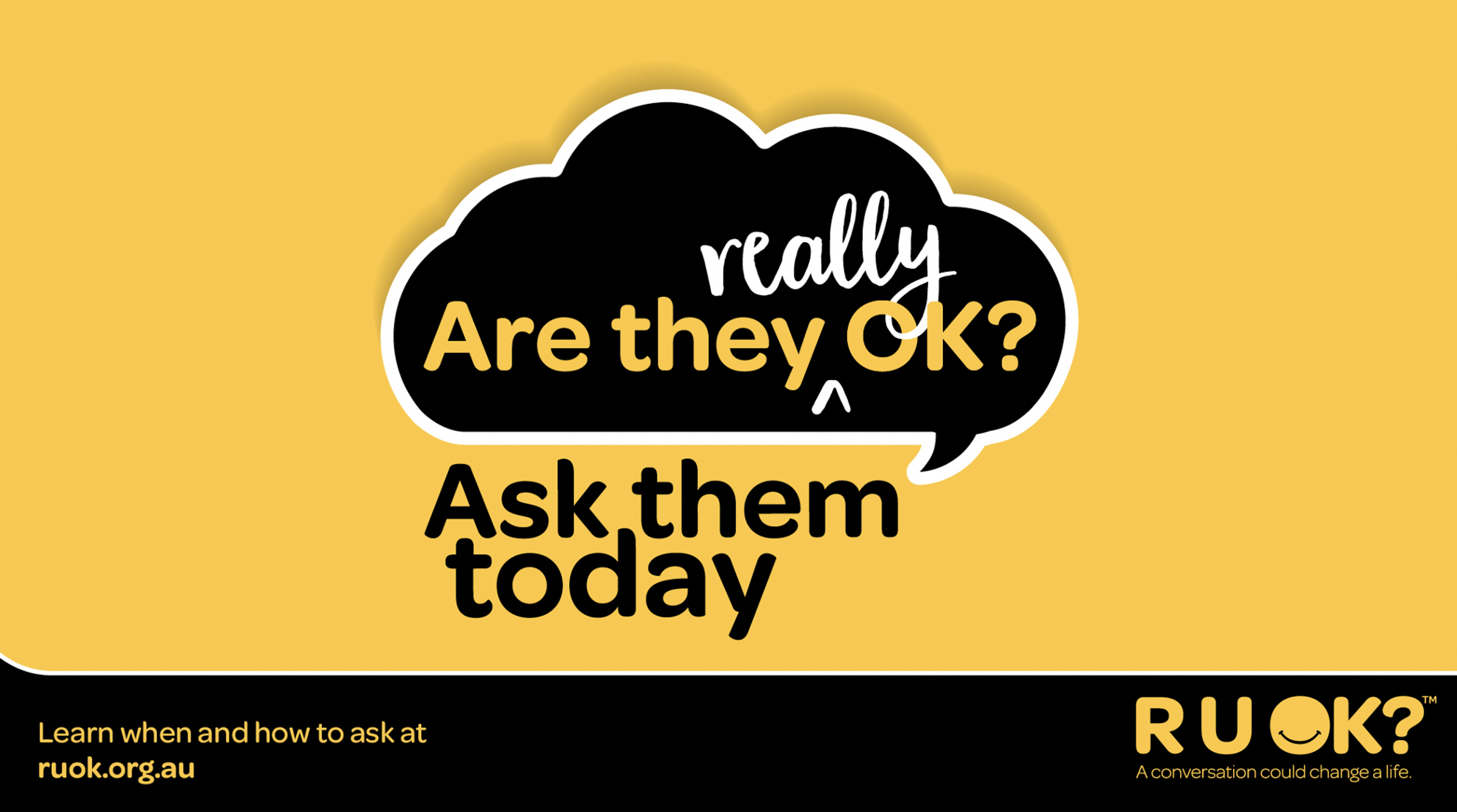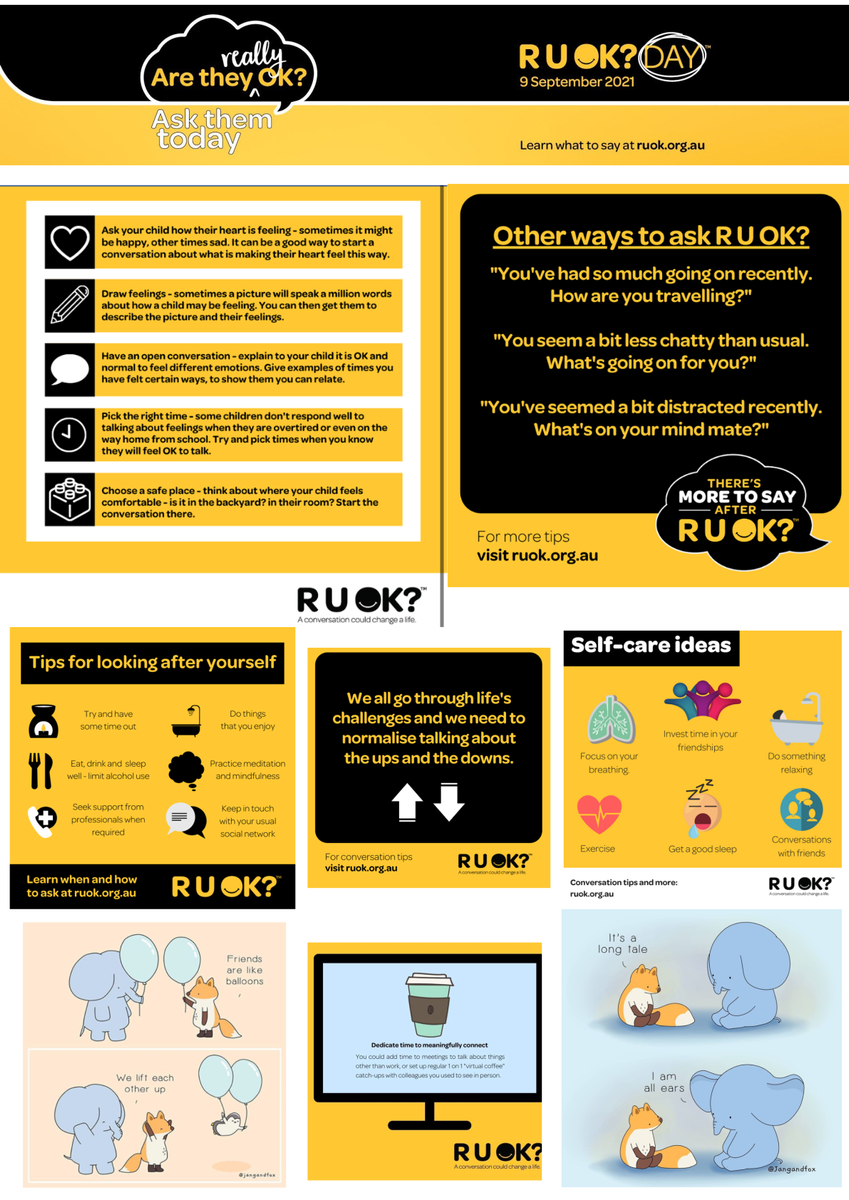R U OK? Day

Helping to reduce pandemic fear in children
Tomorrow we celebrate R U OK? day. R U OK? day reminds us to focus on our own wellbeing and the wellbeing of others, such as our children. The issues surrounding COVID-19 are exposing children to adult issues they do not yet fully understand. I came across an article the other day that outlines some ways we can relieve their fear.
I have outlined some of the main points below.
1. Use the language of hope and reassurance
Reassure your child that as difficult and disturbing the situation appears, our feelings can be managed. Promote optimism. Explain how global, national, state and territory and local strategies are helping to reduce the impact of the virus, and reassure children that the crisis will eventually ease and end.
2. Provide tools so they can help themselves
Teach them mindfulness and relaxation techniques to help them to manage their feelings. For example, teach Window Breathing. Simply take a 4-second-deep breath in, followed by a 4-second-deep breath out and repeat, while your eyes follow around the four sides of a window.
3. Build a sense of safety and connection
Talk with your child. Allow them to share their thoughts or worries. Provide opportunities for them to chat to a friend via the phone or zoom. Perhaps play a suitable online game together.
4. Provide a sense of control and engagement
Encourage your child to go outdoors, to move about, exercise and spend time engaging with the natural environment. Here are some learning activities that make use of time outdoors. Observation of the different types of birds that you might see throughout a day or week, photos of changing cloud formations, sketching of plants, flowers, and trees, increasing stamina with physical activities such as number of star jumps, improving bouncing, dribbling or goal throwing skills with basketballs, keeping a balloon, ball or rolled up socks in the air.
So “R U OK? is encouraging all of us to pause and consider how the people in our world are really going, and to make asking ‘are you OK?’, a part of our everyday.
Conversations could include:
‘How are you going’?
‘You seem less chatty than usual.’
‘You haven’t been coming out of your room much lately.’
‘How long have you been feeling like that’
‘I can see you are getting upset sometimes’
‘I’ve tried this in the past, do you think it could help’? Or ‘I have similar worries, I’ve tried...’
‘Let’s think about what has helped you in the past.’
‘How can we help you to relax right now’? Make suggestions; art, music, a walk, prayer, play, friend ...
‘Let’s work on this together and focus on today.’
‘Is it ok for us to talk about this again’?
It is important that parents don’t feel they are alone in supporting their children. Open up to your family, friends, your school, a GP or a local psychologist. As the saying goes ‘a problem shared is a problem halved’.
